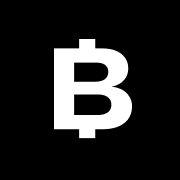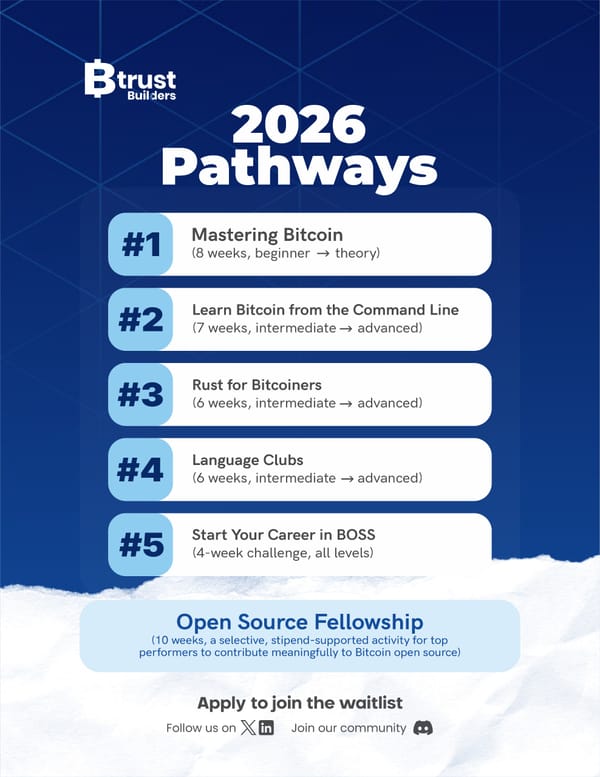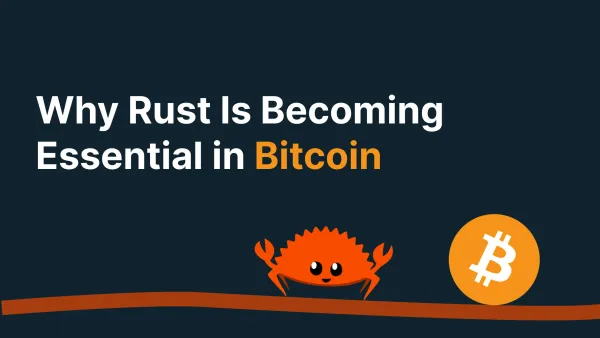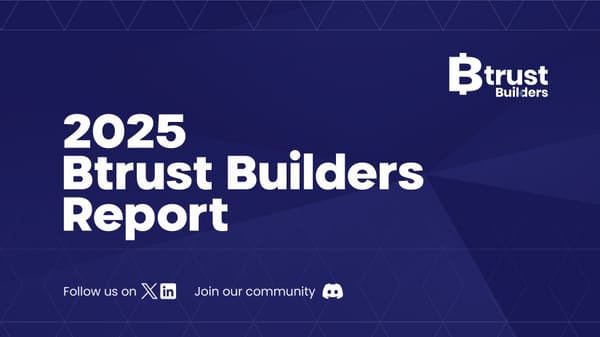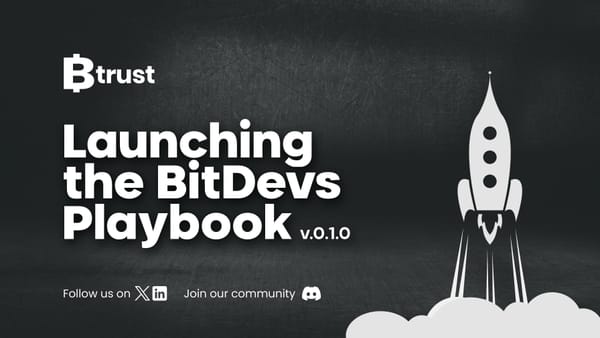My Path to Full-Time Bitcoin Open-Source Development

Written by Itoro Ukpong
This story details my transition from an enterprise software engineer to a full-time Bitcoin open-source developer. It covers my journey through blockchain exploration, the Btrust programs, and the key steps that enabled me to secure a grant for open-source work, offering insights for others interested in contributing to the Bitcoin community.
Background
Before dedicating myself to open-source Bitcoin development, I spent six years as a software engineer, building enterprise applications in the biometrics field. My work primarily involved Java development for the electoral and healthcare sectors. I earned my B.Sc. in Computer Science from Ashesi University in 2018.
Diving into Bitcoin
As a software engineer, I was quite content building biometric software. However, like many in my field, the buzz around blockchain technology piqued my curiosity, prompting me to explore its inner workings. I enrolled in several courses to understand Ethereum, initially without a specific preference for the blockchain technology or the problem it aimed to solve; my sole focus was on comprehending its mechanics.
Learning independently proved challenging while juggling a full-time job. I soon realized that my self-study efforts lacked direction, as I hadn't clearly defined what aspects of blockchain I wanted to master.
In late 2023, a friend introduced me to Btrust Builders, a program that immediately appealed to me with its structured approach to learning about Bitcoin. This program offered the focus and direction I needed, alleviating the burden of figuring out what, where, and how to learn, which allowed me to better balance my work commitments.
Upon my successful application to Btrust Builders, I was delighted. The initial six weeks were dedicated to understanding the theoretical underpinnings of Bitcoin—how it functions and its core principles. This phase was highly engaging, enhanced by collaborative weekly calls with fellow participants where we shared insights and addressed questions. During this period, I gained a profound understanding of Bitcoin's mechanics and its overarching mission: to address issues with traditional money systems and empower individuals with greater financial control.
After a six-week period, I was accepted into the Btrust Builders Fellowship, where we delved deeper into the technicalities of Bitcoin. The program involved writing various programs, such as decoding transactions and creating Lightning channels, as well as working on group projects to build Bitcoin applications. We also explored open-source development, learning about existing Bitcoin open-source projects and the problems they address.
This was an intense period, as I balanced the demanding program with a full-time job. Learning new concepts was both enjoyable and challenging, requiring significant time and consistent effort. I concluded the program by presenting on compact block filters with my teammates. Following a successful completion, I became a Btrust Fellow.
Btrust Builders Fellow to Open-Source Full-Time
My experience with the Btrust Builders program opened my eyes to the potential of Bitcoin and open-source development. I was deeply impressed by the freedom it offered—the ability to choose what matters to you and work on it. This led me to wonder why so many engineers in my field were unaware of Bitcoin, its mechanics, and its unique problem-solving capabilities, particularly in Africa.
While still working my full-time job, I dedicated my weekends to contributing to a project I believed in: BDK. I felt this project could empower individuals and developers to build more effectively on Bitcoin. My dedication paid off when I applied for a starter grant to work on BDK and was awarded it by Btrust in early 2025, allowing me to transition to full-time open-source development.
Securing a grant is challenging and requires demonstrating your capabilities, accomplishments, and interests. I’d like to share four key aspects of my journey that bridged the gap from closed enterprise work to full-time open-source engagement. While not prescriptive, these insights from my experience may be helpful:
Work on a Project that Genuinely Interests You
My initial foray into a particular project didn't go well. Looking back, I realized my lack of genuine interest in the project, or even a clear understanding of its core objectives, was the root cause. My eagerness to contribute to open-source Bitcoin led me to blindly attempt a pull request, driven more by excitement than informed intent. I've since learned the importance of caring about the project, for me at least. It helps to actively engage with it, run it, use it, and generally become familiar with its intricacies. This immersion naturally leads to identifying issues or generating suggestions, enabling more meaningful contributions.
Do Not Take Feedback Personally
One of the feedback from the project I spoke about in the first point read something like this
“You are wasting my time, the time I am using to review your PR is the time I would have used to fix the issue by now.”
I once received critical feedback on a project: "You are wasting my time; I could have fixed this issue myself by now." While initially disheartening, especially with six years of prior engineering experience, I realized the comment, though harsh, likely held truth. It's crucial not to take such feedback personally. In open-source development, you'll encounter diverse personalities and feedback styles. The key is to learn from it and continue contributing constructively to the same or different projects, without letting negative tones discourage you.
Having Good Mentors and Teammates
Btrust offered an invaluable platform, connecting me with experienced Bitcoin open-source developers who provided much-needed encouragement and guidance. Their support was crucial, especially when I encountered obstacles. A significant factor in success, though not entirely within my control, is the quality of one's collaborators. However, the way one approaches and presents their work profoundly influences how team members perceive and interact with them.
Dedicating Consistent Time to Open-Source Contributions.
Transitioning into full-time open-source development, particularly within the demanding Bitcoin ecosystem, presented a significant challenge. It required a delicate balancing act, as I was concurrently working a full-time job. This meant consistently dedicating personal time—evenings, weekends, and any spare moments—to contribute to various Bitcoin projects.
The rationale behind this commitment was clear: building a substantial and high-quality portfolio of open-source work is paramount. A strong track record of meaningful contributions not only demonstrates technical proficiency and dedication but also significantly increases the likelihood of securing grants. These grants are often the crucial bridge, providing the financial support necessary to leave traditional employment and fully immerse oneself in open-source development. It’s a strategic investment of time and effort, with the ultimate goal of transitioning from a passionate volunteer to a fully funded, full-time contributor to the decentralized future.
Conclusion
My move from enterprise software engineering to full-time Bitcoin open-source development was driven by a deep interest and commitment. Working on projects like BDK and benefiting from constructive feedback and mentorship helped facilitate this change. This experience has not only deepened my understanding of Bitcoin's goals but has also underscored the importance of ongoing contributions to open-source initiatives. I hope my journey might encourage others to engage with and contribute to the open-source community, particularly within the evolving world of Bitcoin.
